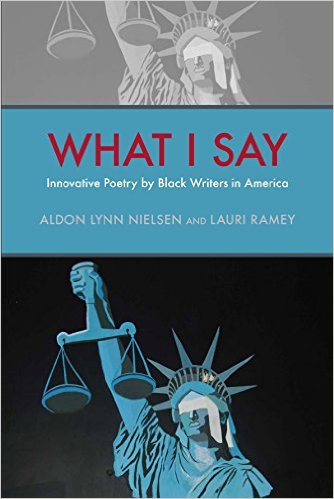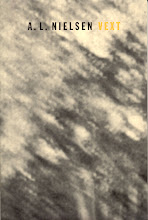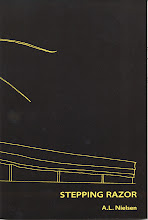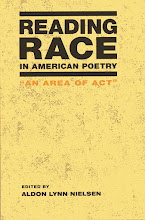Q. Caste, Class and Race by Oliver Cox is often not mentioned these days. How important is Cox to black intellectual thought?
How do we speak of the importance to black thought of someone who we have been in the act of forgetting? In at least one describable sense, Cox’s influence remains visible and active even in the conversations of people who do not know of him: an unspoken, but not unspeakable legacy.
I first heard of Cox from C.L.R. James, who shared his Trinidad origins. The one book of Cox’s that was still readily available at the time was his first, and still his most widely read, Caste, Class, and Race: A Study in Social Dynamics. That Cox was in ways affiliated with the Chicago Schools of Sociology and Economics might have given me pause, but I didn’t know much about them at the time and so came to Cox with none of the cautions I might have later carried into the reading. The book’s title may sound strange to the contemporary ear, but in the era of Cox’s writing it was especially cogent. There were many who argued that American race was a type of caste system. Cox saw the pitfalls in that explanation for racial antagonisms, and was having none of it. His book offered a thorough examination of the ways in which capitalist labor relations produced “race,” and even naturalized racial ideology. Race was, as his subtitle indicated, a social dynamic, not a biological fact. This was not the dominant way of thinking in 1948, and Cox could be, to put it mildly, unstinting in his dispraise of other prominent scholars and activists he thought mistaken. Against the tide of most sociology of his day, Cox wrote in that first book: “it should not be forgotten that, above all else, the slave was a worker whose labor was exploited in production for profit in a capitalist market. It is this fundamental fact which identifies the Negro problem in the United States with the problem of all workers regardless of color." A fuller history of African diasporic thought would give close attention to the far reaching influence of three men from Trinidad: C.L.R. James, especially through his master work, Black Jacobins (1938); James’s student Eric Williams, and his Capitalism and Slavery (1944); and Cox’s Caste, Class, and Race four years later. In the span of one decade, these three men overturned the standard model of history and economics and set a new path for scholarship and political theory.
Melvin B. Tolson once wrote that “If Mr. Eliot had read Dr. Oliver Cox’s Race, Caste and perhaps Class, he would not have written his ‘Class and the Elite.’” Whatever T.S. Eliot might have written if he’d ever read Cox, there was little chance he ever would read Cox. African American philosophy and social thought were not high on Eliot’s intellectual agenda. But Tolson was wise to offer Cox as a counterpoint to one of the dominant strains of modernist thought. Cox and Tolson had both taught for a time at Wiley College, though Cox was to spend the greater part of his career at Lincoln University (the one in Missouri, not the one in Pennsylvania), and taught during his final years at Detroit’s Wayne State University, at a time when Detroit and Wayne were still the locus of the political thinkers and activists associated with C.L.R. James. These sorts of intellectual lineages are important for us to keep in mind. Cox later published Foundations of Capitalism (1959), Capitalism and American Leadership (1962), Capitalism as a System (1964) and his last, Jewish Self-Interest and Black Pluralism (1974). As important as these works are, they are little known today and certainly weren’t read by the likes of Eliot during Cox’s life time. It was not just that Cox was working from small, historically Black universities, whose scholars are even now too often neglected by scholars at Research 1 universities, it was also simply the fact of his blackness.
But Cox always had readers. His work figures importantly in the late Cedric Robinson’s classic Black Marxism, and readers wanting an introduction to Cox today can find a paperback edition of his Foundations of Capitalism along with Caste, Race, and Class. When I moved to Santa Barbara, I met Chris McAuley, who was well versed in the Detroit circuits of Black radical thought, and who was to publish The Mind of Oliver C. Cox, a valuable introduction to Cox’s works.
While Cox is mostly unknown within the general public’s discussions, there is a small revival of interest that may well lead to his getting his due at long last. It is now possible to get an ebook version of Caste, Race, and Class. And there’s been a crucial recent publication. In the early 1970s, C.L.R. James delivered a series of talks at The Institute of the Black World in Atlanta, talks I have written about in a chapter of a forthcoming collection, The Black Jacobins Reader, out shortly from Duke University Press. One of those talks was devoted to the legacy of Oliver Cromwell Cox. I supplied a recording of that talk to Ravi Malhotra, who arranged with Derrick White and Paul Ortiz to have the talk transcribed and published for the first time in New Politics. You can read an introduction by White and Ortiz online at this URL: http://newpol.org/content/introduction-0.
We can hope that these recent publications will attract more scholars and activists to Cox’s work. They will find much that is familiar there, because Cox has had such an extensive, but unacknowledged, influence on thinking about race and class over the past decades.
“What the ruling class requires of race prejudice is that it should uniformly produce racial antagonism; and its laws and propaganda are fashioned for this purpose.”
– Oliver Cromwell Cox
Subscribe to:
Post Comments (Atom)






















No comments:
Post a Comment